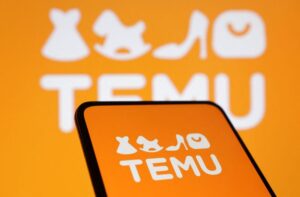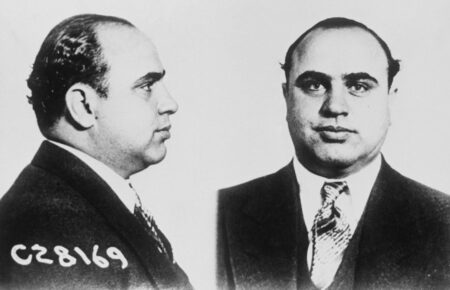On April 23, 2024, the Federal Trade Commission (FTC) issued a final rule banning non-compete agreements. The final rule made clear “that it is an unfair method of competition—and therefore a violation of section 5—for persons to, among other things, enter into non-compete clauses (“non-competes”) with workers on or after the final rule’s effective date.”
On the same day as the ruling, Ryan, a global tax services and software provider with its principal place of business in Dallas, Texas, issued a legal challenge to the new rule, filing suit in the U.S. District Court for the Northern District of Texas.
It was the first such suit filed to counter what the company described as “the FTC’s lawless action, which imposes an extraordinary burden on businesses seeking to protect their intellectual property (IP) and retain top talent within the professional services industries.” The purpose of the suit, the company says, is “to prevent the immense, undue burdens the FTC’s rule would impose on service-driven companies of every size nationwide.”
Background
The FTC’s final rule was in response to the proposed non-compete clause rule, introduced on January 19, 2023, under sections 5 and 6(g) of the FTC Act. It follows a November 10, 2022, statement from Chair Lina M. Khan—a Biden appointee—to reinvigorate section 5 of the FTC Act, which bans unfair methods of competition. It was, the FTC says, a move that reflects the agency’s “efforts to protect workers by promoting competitive U.S. labor markets and putting an end to unfair practices that harm workers.”
According to the FTC, the rule followed “careful review and consideration of the entire rulemaking record,” which included over 26,000 public comments (over 25,000 comments supported the ban). Ryan submitted a 54-page public comment against the FTC’s proposed rule, explaining their position that non-compete agreements are an important tool for firms to protect their IP and foster innovation. Without them, Ryan says, firms could hire away a competitor’s employees just to gain insights into their competitor’s intellectual property.
The vote to approve issuing the final rule was not unanimous, with the vote falling 3-2. Commissioners Melissa Holyoak and Andrew N. Ferguson voted no.
Exceptions
The final rule is not absolute. It carved out exceptions for senior executives (workers earning more than $151,164 annually in policy-making positions). Those existing non-competes can remain in force—according to the FTC, senior executives represent less than 0.75% of workers. An additional exception applies to non-competes entered into in connection with a sale of a business.
Existing non-competes with non-exempt workers (everybody else) are not enforceable after the effective date, defined as 120 days after publication in the Federal Register. Employers will be required to notify those workers bound by an existing non-compete that they will not be enforcing any non-competes against them. According to Ryan’s lawsuit, the move would retroactively invalidate 30 million employment contracts and preempt the regulatory regimes of at least 46 states.
FTC Findings
While crafting the rule, the FTC found “that non-competes tend to negatively affect competitive conditions in labor markets by inhibiting efficient matching between workers and employers.” It also found “that non-competes tend to negatively affect competitive conditions in product and service markets, inhibiting new business formation and innovation.” Finally, it suggests that there is evidence that non-competes lead to increased market concentration and higher prices for consumers.
Legal Challenge
Ryan says the new FTC rule will jeopardize business owners’ ability to protect their intellectual property and retain top talent. The company is filing the lawsuit because it believes “the rule will negatively impact employees because companies will invest less in their training and skill development.”
According to the company, Ryan’s team comprises over 4,800 professionals and associates serving over 30,000 clients in more than 80 countries, including many Global 5000 companies.
Ryan wrote in court documents that “By nullifying these agreements, the Non-Compete Rule puts Ryan’s confidential business information at risk, permits departing shareholders to poach clients, and enables competitors to poach shareholders for whom Ryan expended training resources.” The company added that “The Rule also will force Ryan to shrink the size of the teams it uses to serve clients, to contain the harms to the firm that may be caused by departing shareholders. This reduction in internal information-sharing will increase the costs of providing client services.”
G. Brint Ryan, Chairman and CEO of Ryan, told Forbes, “We are unique, even among professional services firms, and that’s one of several reasons why we decided to litigate. Our teams develop proprietary methods, including technical know how and software, to manage large and complex tax liabilities for our clients. We do so in a value-share model, meaning that when our clients benefit, our firm benefits, and our team members benefit directly from the IP they create. So, if someone steals a proprietary idea or approach (which has happened) the most immediate loss is to our people.”
He added, “In our case, the idea that this is somehow workers vs. companies is completely wrong. But, then again, there are so many things wrong with the FTCs approach it’s hard to know where to start.”
Ryan has engaged Gene Scalia, former US Secretary of Labor, and his team at Gibson, Dunn & Crutcher LLP to challenge the FTC’s new rule. When asked about the lawsuit, Scalia said, “The FTC’s rule banning non-compete agreements is unlawful. Congress did not authorize the FTC to promulgate rules defining unfair methods of competition, and certainly did not authorize it to retroactively invalidate millions of employment contracts that are valid under the laws of dozens of states.”
Ryan has filed a motion to expedite the proceedings so that the court can issue a decision approximately two months before the rule’s effective date. The court has not yet ruled on the motion, and the government has until May 7, 2024, to respond to the request.
More Information
Jason Tremblay, a business attorney and litigator at Saul Ewing in Chicago, Illinois, who advises companies on employment law and commercial matters, wasn’t surprised by the ban or the legal challenges. The ban, he says, was “telegraphed from the proposed rule” issued in 2023.
Tremblay, who works with clients on both sides—employers and employees—of restrictive covenants (a term that encompasses non-competes and similar agreements), explained that such agreements have existed for over 100 years. In a non-compete agreement, an employee agrees not to compete with an employer. He says that that differs from a non-solicitation agreement, where an employee agrees not to take workers or customers when leaving the company. And, a confidential/trade secret agreement creates an obligation by the employee to keep information secret. These agreements are typically limited by time (often, one or two years) and in many cases, they are tied to a particular geographic area.
Reasonable agreements, says Tremblay, have traditionally been enforced, though the scope has been narrowed in recent years. As a result, he notes, some companies have already been moving away from true non-competes. They’ve been asking, “Can we get by with just a non-solicitation agreement?” He says those agreements address one of the biggest concerns employers have—losing clients.
When it comes to service professionals in areas like tax and law, he says, “what really hurts is your clients leaving for another firm.”
But no matter the industry or size of the company, the new rule, says Tremblay, if it moves forward as written, “will affect everyone.” That said, he’s advising clients to wait, noting that he’s not convinced the final rule will remain in place untouched. Referring to legal challenges currently being filed, he says, “I think they have traction.”
Other Legal Challenges
Other challenges were filed quickly after the ruling. On April 23, 2024, the same day as Ryan’s court challenge, the U.S. Chamber of Commerce filed a lawsuit against the FTC in Texas.
Two days later, on April 25, 2024, ATS Tree Services, based in Bucks County, Pennsylvania, also filed a lawsuit against the FTC. ATS uses non-compete agreements to protect the investment it makes in its employees’ training, it explains, which gives it some confidence that it is not investing in an employee it will immediately lose to a competitor.
“Congress never gave the FTC power to rewrite the employment contracts of millions of Americans,” said Josh Robbins, an attorney at Pacific Legal Foundation, a public interest law firm, representing ATS. “The FTC is attempting to invent new powers for itself that stray far from the agency’s original antitrust mission.”
Next Steps
Additional legal challenges will likely be brought to prevent the ban from being enforced—and those who have already filed challenges may, as Ryan has done, seek to expedite them. Tremblay expects that no matter the outcome, the cases will be appealed, potentially all of the way to the Supreme Court. However, he expects any legal maneuvering to follow a somewhat aggressive timeline.
In the meantime, Tremblay suggests consulting with an attorney if you have questions about an existing agreement or your obligations moving forward. At the same time, he’s advising his own clients to wait and not to panic. While he understands the direction the FTC is moving, he isn’t sure that the result will be to overturn 100 years of precedent.
Absent the rule, he explains, these agreements have long been a creature of state law. While he doesn’t have a crystal ball, Tremblay says that in the end, “it could default to what the states say.”
Read the full article here
















